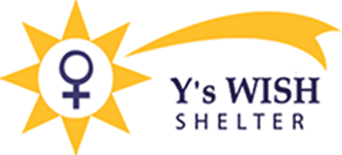If this is an immediate emergency and your life is in danger, please call 911 first.
If you’re afraid, call us. It is the first step. And it can change your life forever.
Leaving an abusive situation is one of the toughest things you’ll ever have to face. How will you look after small children? Where will you find affordable housing? If you’re new to Canada, how will you find support in an unfamiliar environment? We can help.
Our 24-hour confidential Crisis Line is open 7 days a week, 365 days a year.
Caring, knowledgeable staff provides information, support and advice
We can offer advice in Spanish, Italian, French, Greek, Russian and American Sign Language.
Y’s WISH Shelter opened its doors in 2003 and has been a safe haven and support for thousands of women and children ever since. Y’s WISH stands for Women In Safe Housing. We will help you by offering a safe and secure temporary home in our 15 bed shelter. You and your children are welcome regardless of age, ethnicity or sexual orientation. We provide healthy meals and snacks, a comfortable room to sleep, clean washrooms, play room and family room – all in a secure setting.
We can connect you with community agencies including housing, social services, employment, legal aid and more. Find out more about our transitional and outreach support. We also offer short term crisis counselling for women and children in individual and group settings. Finally, we can connect you to information, referrals and advocacy to ensure a smooth transition back into your community. We are also a Safe Pet Ontario member if you are concerned about what will happen to your pet if you leave.

Abuse can take many forms including physical, emotional/psychological, sexual, financial and neglect. The abuser attempts to intimidate and control the woman by using force or threats, often leaving the woman feeling devastated and alone. Abuse can happen to any woman, at any time, regardless of her sexual orientation, age or culture. Abuse affects women and children from all faiths, educational levels and socioeconomic backgrounds.
You are not alone.
Statistics Canada estimates that police-reported intimate partner violence represents only 30% of actual incidents. Studies have shown that 1 in 3 women have experienced violence before the age of 16.
Does your partner:
If you answered YES to any of these questions, you may want to contact our Crisis Line for support at
905-576-2997 or 1-888-576-2997
Children of abused women are affected in many ways by the violence in their lives. They often:
Do Not:
Abuse is NEVER okay. It is against the law.

Charitable No. 1217 90240 RR0001
YWCA Durham is situated on the Traditional Territory of the Mississaugas of Scugog Island First Nation and the territory that is covered by the Williams Treaties.
Copyright 2024 YWCA Durham | All Rights Reserved | Web Design by DIT Web Solutions Inc.